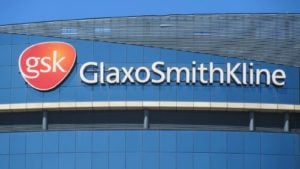For example, homebuilders and many automakers will probably slump because fewer-than-expected consumers will be able to afford to borrow the money necessary. Moreover, some banks will likely retreat because their net interest margins will come in below expectations because of their need to keep paying high rates. Conversely, companies with little or no connection to U.S. consumer spending will be largely immune to the Fed’s moves. Here are three very well-positioned stocks that are unaffected by the Fed.
GE Vernova (GEV)

GE Vernova (NYSE:GEV) primarily sells wind turbines and products related to generating electricity. Most of its customers are electrical utilities and governments that have no problem accessing the funds they need to purchase its offerings. As a result, GEV is very unlikely to be meaningfully affected by any rate hikes by the Fed.
Moreover, investment bank Evercore recently asserted that GEV has “leverage to the ‘electrification of everything’ mega-theme.” In other words, the firm is going to benefit tremendously from increased demand for electricity in many sectors.
And GEV’s first quarter results did indicate that it’s starting to rapidly grow as a result of the “‘electrification of everything” trend. Specifically, its top-line advanced 6% versus the same period a year earlier to $7.3 billion. Meanwhile its EBITDA, excluding certain items, came in at $200 million versus an adjusted EBITDA loss of $100 million in Q1 of 2023.
GSK (GSK)

British pharma giant GSK (NYSE:GSK) obtains its revenue primarily from governments and private health insurers. Both have access to tremendous amounts of money and are little affected by interest rate fluctuations.
GSK’s vaccine for RSV, Arexvy, has turned into a blockbuster. It also has two cancer drugs that look poised to attain similar status. Meanwhile, the valuation of GSK stock is quite low.
Last quarter, Arexvy generated a huge $1.5 billion of revenue for the British drug maker. What’s more, the U.S. Food and Drug Administration is considering approving Arexvy for patients 50 to 59 years old. An approval would likely significantly boost GSK’s revenue, especially since no other RSV vaccine has been approved for that age bracket.
Meanwhile, the company finished a Phase 3 trial of the blood cancer drug, Blenrep. The trial found that the treatment “nearly tripled survival without disease progression” versus those that are currently available. Moreover, the FDA has agreed to review the company’s application for the approval of its anti-cancer biologic, Jemperli.
WisdomTree India Earnings Fund (EPI)

The IMF’s executive director, Krishnamurthy Subramanian, expects India’s economy to expand at a huge 8% rate during the current fiscal year. Meanwhile, the IMF itself estimates that the country’s GDP will grow at a 6.5% rate. The IMF explained that Subramanian’s forecast was made in his role as India’s representative to the organization.
But either way, it’s fair to conclude that the Indian economy will grow very rapidly this year. Indeed, India is now the world’s fastest growing major economy, according to S&P. Moreover, many major American companies are investing large amounts of money in building factories in the country. This all bodes well for the WisdomTree India Earnings Fund (NYSEARCA:EPI), an ETF which aims to imitate the Indian economy.
EPI stock has climbed 10% this year despite the recent concerns over the Fed’s decisions. Given the stellar outlook of India’s economy, EPI should be one of the stocks that are unaffected by the Fed.
On the date of publication, Larry Ramer held long positions in GEV and EPI. The opinions expressed in this article are those of the writer, subject to the InvestorPlace.com Publishing Guidelines.
Larry Ramer has conducted research and written articles on U.S. stocks for 15 years. He has been employed by The Fly and Israel’s largest business newspaper, Globes. Larry began writing columns for InvestorPlace in 2015. Among his highly successful, contrarian picks have been SMCI, INTC, and MGM. You can reach him on Stocktwits at @larryramer.
